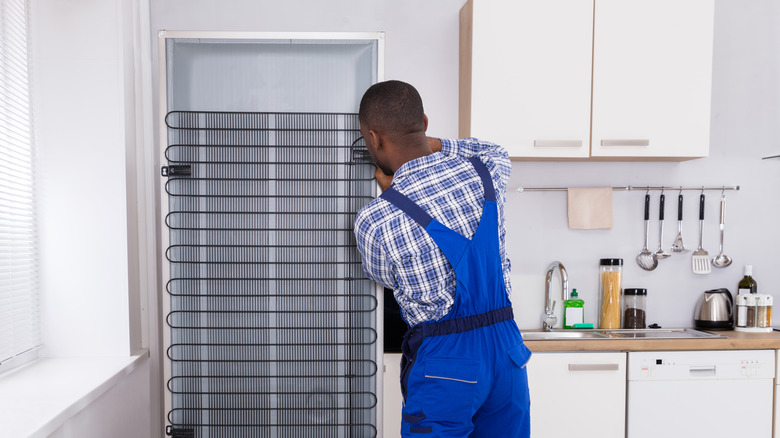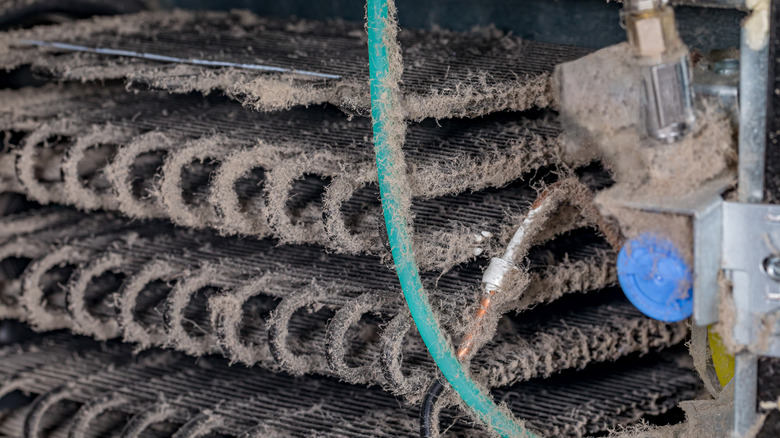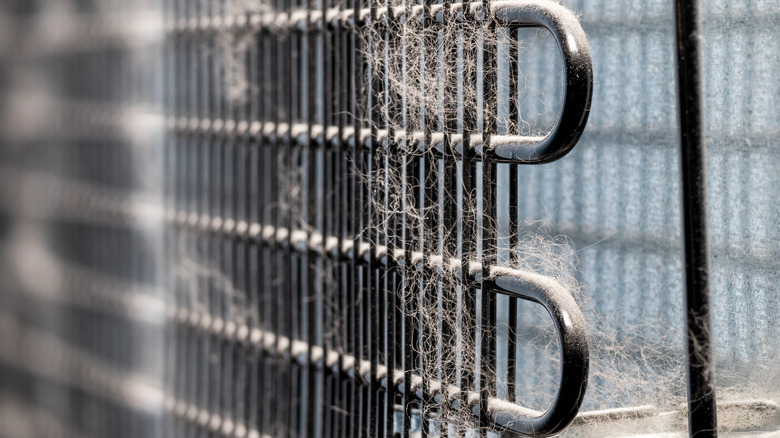Are DIY Cleaners Safe To Use On Refrigerator Coils? Our Cleaning Expert Weighs In
When you're deep cleaning the fridge, don't forget about the coils. That's right, the out-of-sight, out-of-mind condenser springs at the back or bottom of the refrigerator should be cleaned, too. There are various online blogs that recommend DIY sprays to clean the appliance's coils — something along the lines of equal parts water and vinegar to eliminate grime. However, in an exclusive interview with House Digest, Katie Berry, cleaning expert for Housewife How-Tos, warns against the homemade solution. Berry explained, "Using DIY cleaners on refrigerator coils isn't a great idea. If not done properly, it can lead to other problems."
While cleaning the appliance's coils can help extend the life of your fridge, there is a proper way to do so that doesn't involve a specialty mix of household products. Berry shared with us her tried-and-true method for degunking the coils, along with the major issues DIY cleaners can cause.
Why you should avoid DIY cleaners on your fridge coils
Katie Berry exclusively told House Digest, "The problem with DIY coil cleaning sprays, which often contain vinegar or rubbing alcohol, is that they cause corrosion if not rinsed off properly. But it's hard to rinse them well due to the coils' complex structure — a spray bottle isn't going to cut it." And since you don't want to ruin the appliance's electrical function, hosing down your fridge coils isn't a good idea either.
Not only can DIY coil cleaning sprays lead to corrosion issues, but it can be a major inconvenience, as the coils have to dry before you can use the appliance. "You'll need to let them completely air-dry, which means having your fridge unplugged and pulled out of its usual spot for hours," Berry explained. While there are several ways to use rubbing alcohol around the house, disinfecting your refrigerator coils is not one of them. Luckily, there is an easy method to clean the condenser coils without any drying time or the risk of rust.
How to safely clean refrigerator coils
It turns out that properly cleaning your refrigerator coils doesn't require any cleaning solutions at all, just some handy tools. After pulling the appliance out, unplugging it, and removing the coil cover, Katie Berry explained, "Vacuum the condenser coils with a crevice attachment. After that, use a coil brush or fuzzy duster to loosen up any remaining debris, and vacuum again." That is it, no sprays or air drying needed. If you don't have a vacuum, "compressed air is another great, non-damaging way to get stubborn debris off the coils," according to Berry. Just spray the pressurized canister along the springs and sweep the fallen dust bunnies.
Before you plug in the refrigerator and push it back in position, remember that its placement matters. You shouldn't force the appliance flush against the wall. "Make sure you're leaving adequate space around the fridge when you put it back in place," Berry told House Digest in our exclusive interview. "About 2-3 inches between the fridge and the wall lets the heat released by the condenser coils escape." Then your fridge should work at its best, and you don't have to worry about dusty coils for a few months.


